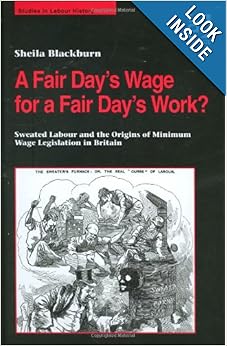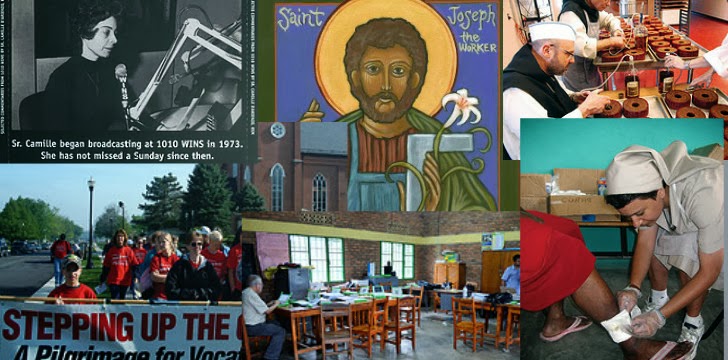Employers who pay an unlivable wage do not care, because they go through employees like a slaughter house does chickens.
And while many would defend the minimum wage/no benefit employers they forget, that in the end these employers don't just profit share holders they rob tax payers to do so. By failing to provide fair wages they force workers onto welfare programs, in the truest sense that make taxpayers fuel their engines of commerce. We feed their workers through the food stamp program.
Catholics social teaching promotes a living wage because of man is not an expendable cog in a factory, but made in the image and likeness of God.
Bishop Malcolm McMahon, Chairman of the Catholic Education Service, said: "A Living Wage is essential in the promotion of family life in our society. It ensures that the worker has enough money to cover the basic living costs for both themselves and their family. Catholic organisations have the responsibility to promote human flourishing through the dignity of work and the Living Wage plays an important part in this. I congratulate those Catholic schools, charities and universities who are already Living Wage employers and thank them for the great example they set us in their work for the Common Good."The collection of online resources includes a series of videos of guest speakers looking at the view of Catholic Social Teaching and the Living Wage, downloadable copies of the Papal encyclicals which focus on the Living Wage, a downloadable HR and implementation guide for schools and colleges who are considering becoming a Living Wage employer, and a short film produced by the students of St Charles Catholic Sixth Form College, London on the Living Wage.
The resources are available on both the Catholic Education Service and Catholic Bishops' Conference websites:
www.cbcew.org.uk/living-wage and www.catholiceducation.org.uk/campaigns/living-wage
A Fair Days Wage for a Fair Days Work? (Studies in Labour History)



